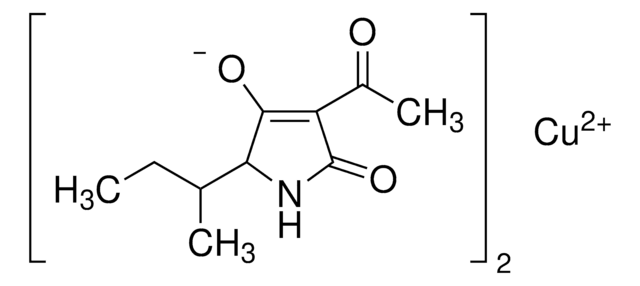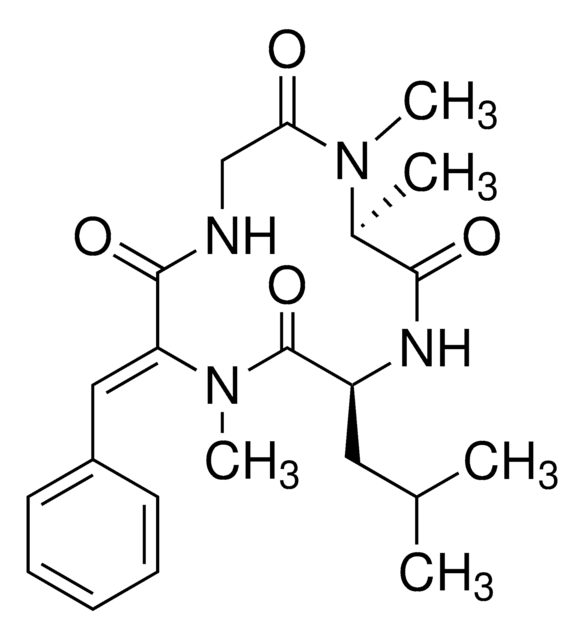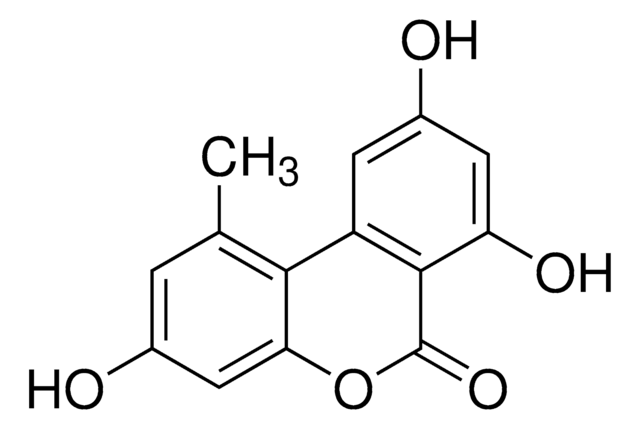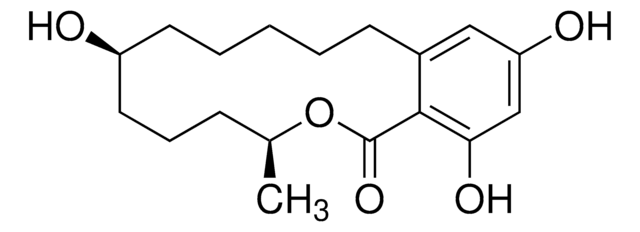37018
Tenuazonic acid
analytical standard
Synonym(s):
(5S)-3-Acetyl-1,5-dihydro-4-hydroxy-5-[(1S)-1-methylpropyl]-2H-pyrrol-2-one, (S)-3-Acetyl-5-(S)-sec-butyltetramic acid, (S)-3-Acetyl-5-sec-butyl-4-hydroxy-3-pyrrolin-2-one
About This Item
Recommended Products
grade
analytical standard
Quality Level
shelf life
limited shelf life, expiry date on the label
technique(s)
HPLC: suitable
gas chromatography (GC): suitable
application(s)
cleaning products
cosmetics
food and beverages
personal care
format
neat
storage temp.
−20°C
SMILES string
CC[C@H](C)[C@@H]1NC(=O)C(C(C)=O)=C1O
InChI
1S/C10H15NO3/c1-4-5(2)8-9(13)7(6(3)12)10(14)11-8/h5,8,13H,4H2,1-3H3,(H,11,14)/t5-,8-/m0/s1
InChI key
CEIZFXOZIQNICU-XNCJUZBTSA-N
General description
Application
- Cornflakes using high-performance liquid chromatography (HPLC) technique.
- Human urine samples using isotope dilution assay method and liquid chromatography coupled to a hybrid triple quadrupole/linear ion trap mass spectrometer.
- Cereals using high-performance liquid chromatography–electrospray ionization ion-trap multistage mass spectrometry (HPLC- ESI ion-trap (IT) MS2). ESI Fourier transform-ion cyclotron resonance tandem mass spectrometry (FTICR-MS2) technique is used for product characterization, post derivatization with 2,4-dinitrophenylhydrazine.
Reconstitution
Analysis Note
Signal Word
Danger
Hazard Statements
Precautionary Statements
Hazard Classifications
Acute Tox. 3 Oral
Storage Class Code
6.1C - Combustible acute toxic Cat.3 / toxic compounds or compounds which causing chronic effects
WGK
WGK 3
Flash Point(F)
Not applicable
Flash Point(C)
Not applicable
Choose from one of the most recent versions:
Already Own This Product?
Find documentation for the products that you have recently purchased in the Document Library.
Our team of scientists has experience in all areas of research including Life Science, Material Science, Chemical Synthesis, Chromatography, Analytical and many others.
Contact Technical Service







